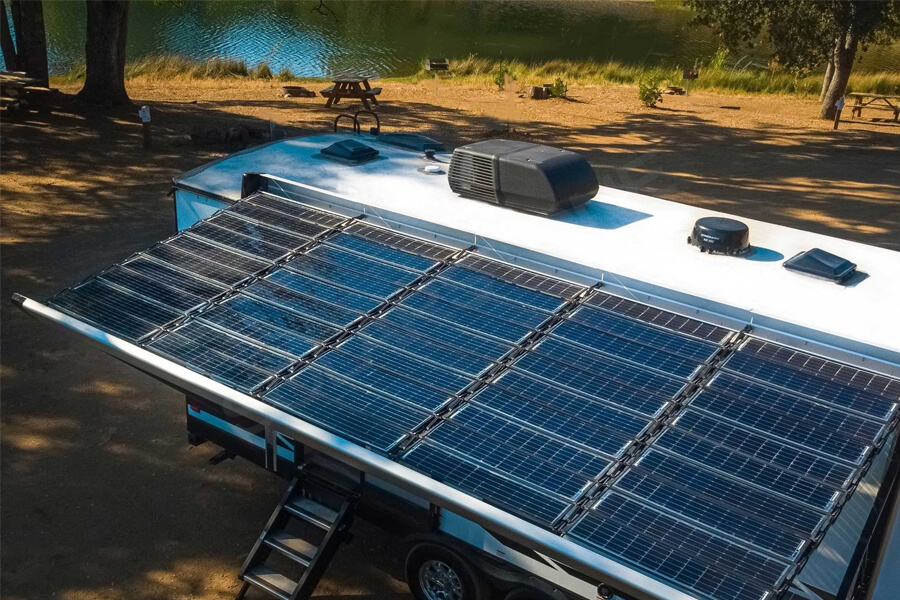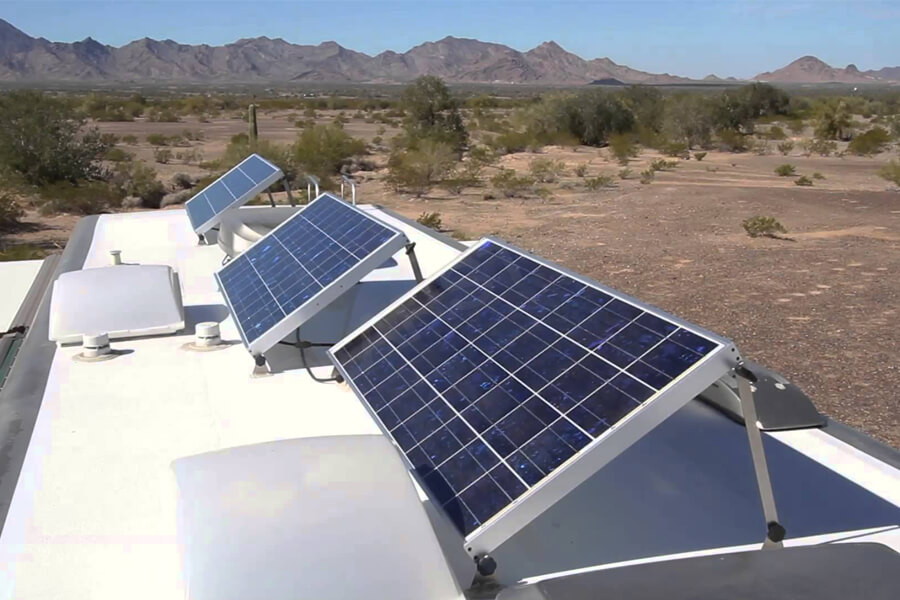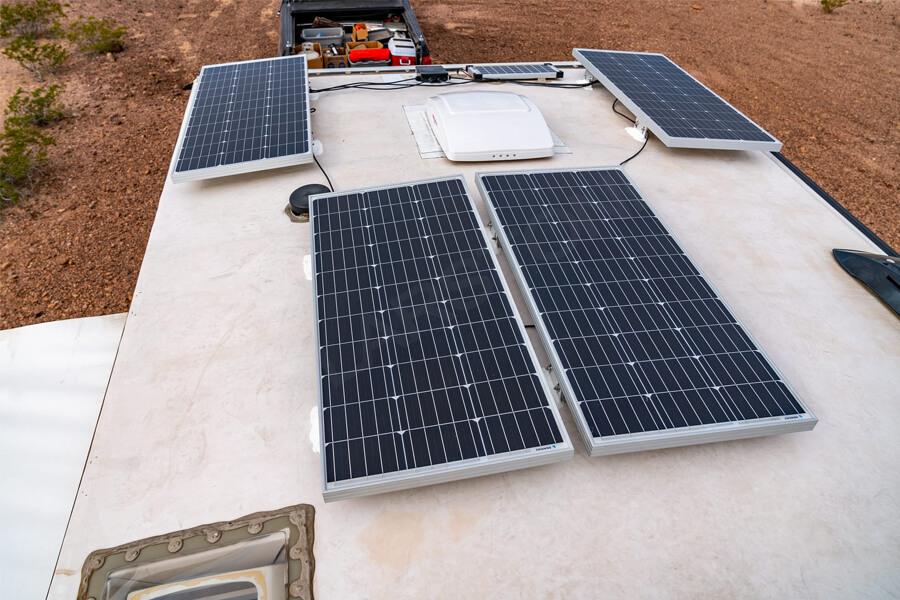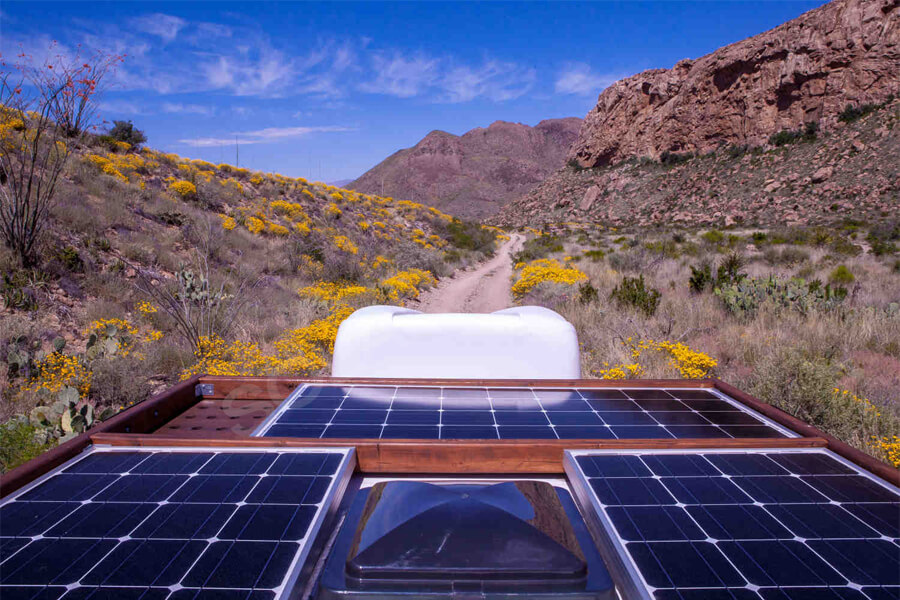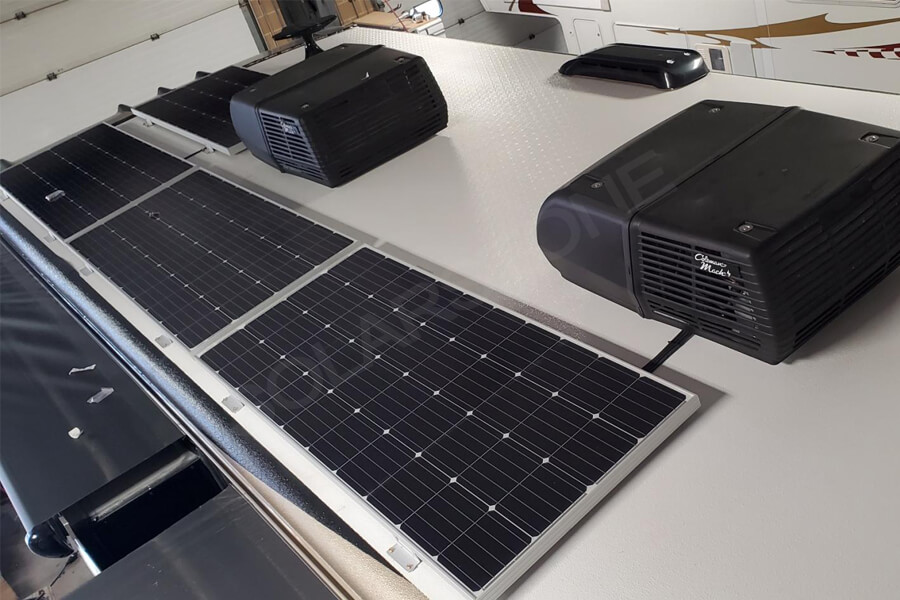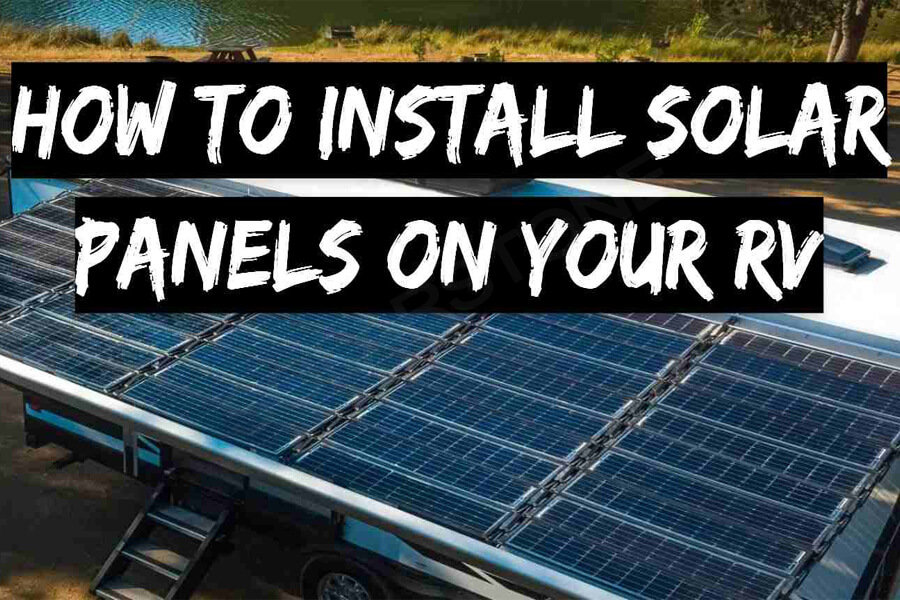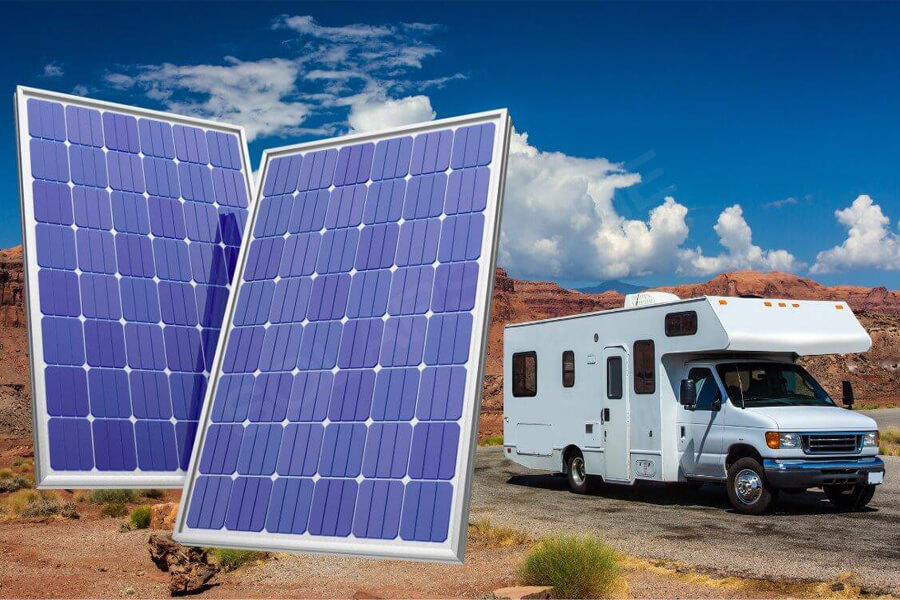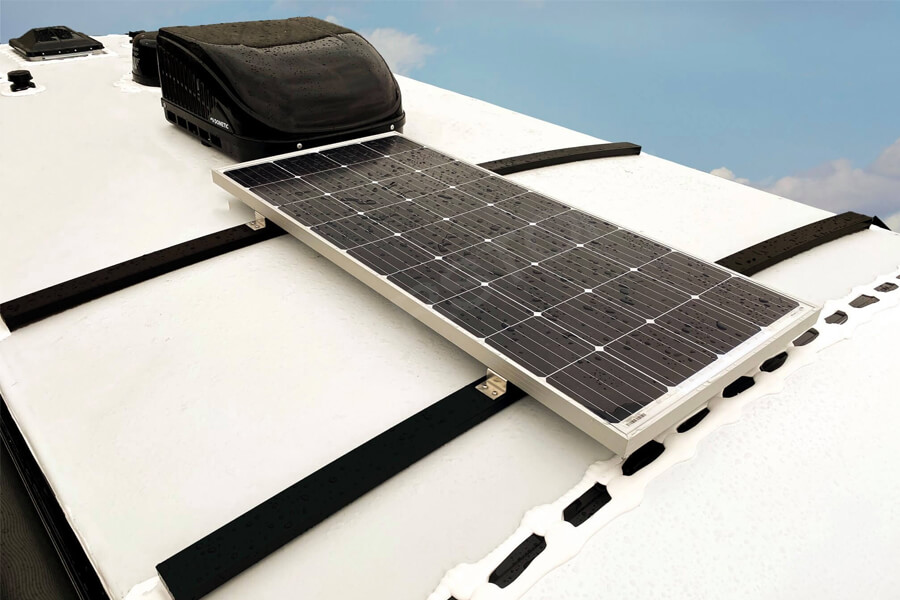It is becoming increasingly common to see solar panels on the roof of recreational vehicles (RVs). Although solar panels cannot replace internal combustion engines and turn your RV into an all electric vehicle, they can allow you to run your lights and appliances cleanly, rather than relying on fossil fuel generators.
Solar panels also allow you to freely camp in areas off the grid and where generators are not allowed, without having to find an available connection point in crowded campsites.
Of course, using solar panels can reduce your carbon footprint. Here, we discuss the solar modules of your RV and whether they are worth investing in for your next RV trip.
RV solar module
RV solar energy is not as simple as connecting solar panels to the roof and inserting them into electrical appliances. The following are the main components of the RV solar system.
1. Solar panels
The panel can be flexible, portable, or rigid. Lightweight flexible panels are more suitable for molding rather than flat RV roofs, while portable panels can be placed on or outside the vehicle in any position, so even if the RV is parked in a cool place, they can still capture sunlight.
Rigid panels are heavier, but they are also more durable and efficient. The panel can generate 150 watts of power in flexible and portable panels, and up to 250 to 300 watts in rigid panels.
2. Battery
Most RVs have two batteries. The 12 volt lead-acid/AGM starter battery is used to start the engine, while the 12 volt RV “house” battery pack is used to operate DC powered equipment such as fans, lights, and water systems.
The AC/DC inverter can provide 120 volts of power through the “shore power” connection at the RV camping site, supplying power to air conditioners, microwaves, and other energy intensive equipment.
In more modern RVs, the old lead-acid RV battery pack has been replaced by solar panels and lithium iron phosphate batteries charged by the RV’s engine alternator through DC/DC chargers. Together, they provide faster charging speed and longer battery pack life, making them particularly suitable for off grid use.
Some RV owners upgrade to lithium-ion batteries, which are lighter, more efficient, maintenance free, can accommodate more energy, and have a longer lifespan. The disadvantage is that their costs are much higher.
3. Solar charging controller
The solar charging controller protects your battery by adjusting the current from the solar panel to the battery. The controller matches the voltage output of the solar panel with the voltage capability of the battery.
4. Inverter
Many RVs are already equipped with inverters that can convert direct current from 12 volt batteries into 120 volt alternating current for lamps and other electrical equipment. More expensive inverters can generate more reliable and stable electricity required to operate sensitive devices such as electronic or medical devices.
5. Transfer switch
The transfer switch allows you to switch the power supply from the battery to shore power while parking at the camping site, or turn off the propane source while driving.
Solar Energy and Generators: Which is Better?
Not surprisingly, solar panels are more environmentally friendly than fossil fuel generators. Here are some other factors to consider:
(1) Energy: Solar panels require sufficient sunlight to charge the batteries, while generators require sufficient fossil fuels.
(2) Space: The generator and its fuel occupy a large amount of internal storage space. Solar panels are limited by rooftop space.
(3) Flammability: Generator fuel (usually diesel, gasoline, or propane) is flammable. Some states prohibit the use of propane generators while driving.
(4) Maintenance: The generator requires regular maintenance and will leave sulfate residue in the battery. Due to the lack of moving parts, solar panels require almost no maintenance besides removing dust and debris.
(5) Power speed: The generator provides instant power. The speed of solar power generation is relatively slow.
(6) Cost: The installation cost of solar panels is usually higher than that of generators, but once installed, sunlight is free and can be infinitely regenerated.
(7) Noise: Running a generator in a crowded campsite at night won’t win you any friends. However, absolutely quiet solar panels do not produce anything at night.
(8) Emissions: Power generation opportunities emit greenhouse gases, carbon monoxide, and particulate matter, while solar panels emit zero emissions. The manufacturing of solar panels is not carbon free, but the manufacturing or operation of generators using fossil fuels is also not.
Install solar panels on your RV
Installing solar panels on a RV is no more complex than installing solar panels on the roof. When you are ready to purchase and install, please remember:
(1) Calculate how many panels you need. Determine the power requirements of your device and the number of hours you use them every day.
(2) Consider what equipment your RV already has. Many RVs sold on the market are already equipped with or ready for solar energy. For safety and efficiency, please ensure that your RV has sufficient large size wiring to provide full power to your battery from your panel.
(3) Purchase everything at once. Each component of the RV solar system needs to be compatible with each other. RV solar panel kits are more expensive than purchasing each component separately, but their components are already compatible.
Installing RV solar systems includes potentially expensive upfront costs. But these costs may save you electricity and fuel costs, as well as camping expenses. Solar panels will also reduce your greenhouse gas emissions. If you want to fully achieve zero emissions, you can consider taking an electric car for camping road trips.
The questions people often ask
1.How many solar panels does a RV require?
Based on the amount of sunlight you receive and the amount of energy used, a single 100 watt solar panel may be able to charge a 12 volt DC battery. You may need multiple higher power panels and multiple batteries to provide you with more power over a longer period of time.
2.Is solar panels worth using in RVs?
It depends on your usage situation. Compared to generators, the upfront cost of solar panels is higher, and if you often rely on off grid solar power generation, you can recover the cost. However, if you only park your RV in a camping site with shore power, investing in solar panels may not be worth your money and effort.
3.How much does the solar panel of the RV cost?
If your RV is not equipped with solar energy, you may need more than just a minimum 100 watt solar panel kit, with mounting brackets and a solar charging controller, at a cost as low as $150. The cost of using lithium-ion batteries and multiple panels on the roof can be several thousand dollars.


